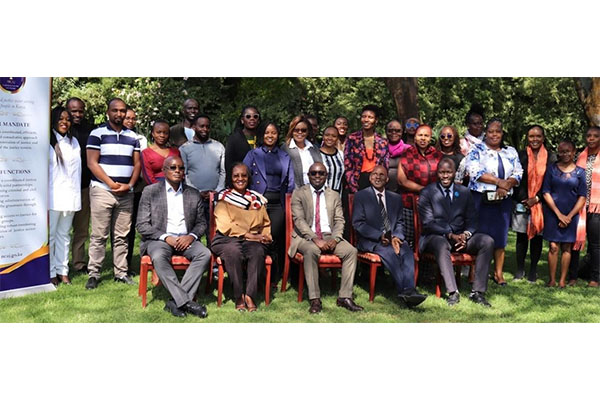Breaking Ground on Justice: The Journey to Overhaul Kenya’s Sexual Offences Laws Begins in Machakos
In the quiet town of Machakos, a group of dedicated legal minds gathered for an intense working retreat. The purpose was singular but monumental: to initiate the process of overhauling Kenya's Sexual Offences Act. Hosted by the National Council on the Administration of Justice (NCAJ), the retreat brought together an array of stakeholders, including UNICEF, the Kenya Law Reform Commission, and the National Council of Children Services. Their mission was not only legal but deeply personal— reshaping laws that affect the most vulnerable members of society.
This gathering marked the beginning of what could be a seismic shift in how sexual offences are legislated in Kenya. Under the leadership of the NCAJ’s SGBV Committee, the retreat aimed to draft the first amendment bill to the Sexual Offences Act, a crucial step toward a complete repeal and replacement of the outdated legislation. The task was not just to tweak language, but to reconsider the very framework of laws meant to protect victims, ensure justice, and deter crimes of sexual violence.
On the first day, the Vice Chairperson of the Committee meticulously walked the drafters through the instructions—blueprints for what the new law should achieve. With pens poised, the drafters, some drawn from parliament and the Kenya Law Reform Commission, set to work.
Their efforts weren’t just about drafting lines of text but sculpting a legal foundation that could withstand the scrutiny of courts, lawmakers, and the public. Every clause was a battleground for clarity, precision, and justice.
It wasn’t smooth sailing. As the drafters worked, they encountered instructions that were unclear, or at times, entirely absent. New issues emerged that had not been anticipated by the original committee guidelines. Instead of abandoning these complexities, the team meticulously packed and tracked these points in a separate document, recognizing that each issue represented a potential hurdle for justice that needed to be addressed before moving forward.
After days of intensive back-and-forth, the first draft of the amendment bill was completed. It was a significant milestone, but not the final step. The draft did not incorporate all the elements of the Cradle Bill—a working document developed to address children's rights within sexual offence laws—but it was a comprehensive start. The work doesn't stop there. The Amendment Bill and a matrix of unresolved issues will now be presented to the larger SGBV Committee for review and guidance.
The team also identified issues that are better handled through policy reforms, regulatory updates, or practice directions rather than legislative changes. What remains is the core task: to refine the bill into a document that can be taken to the Kenyan public for participation, ensuring that it reflects the voices of all those who will be impacted by it.
The drafting team at Machakos laid the groundwork for what could be a transformative shift in Kenya’s approach to sexual offences. Their work, though still in its early stages, signals hope for a more just and equitable legal framework, one that better protects the rights and dignity of survivors of sexual violence. The road ahead is long, but this retreat marks the beginning of a journey toward greater justice for all.
Stakeholders from NGEC, UNICEF, and the Kenya Law Reform Commission at the NCAJ retreat in Machakos, collaborating to reform Kenya's Sexual Offences Act.


Comments